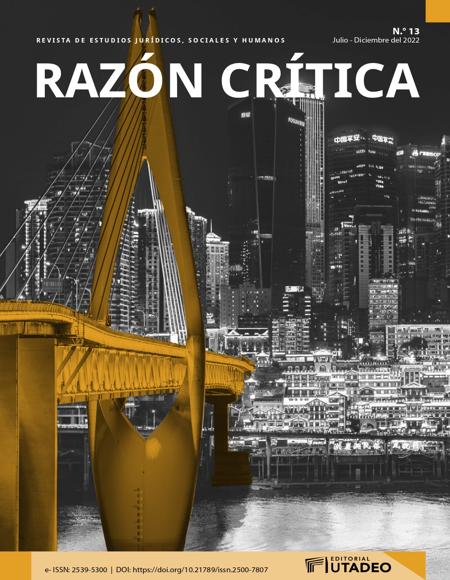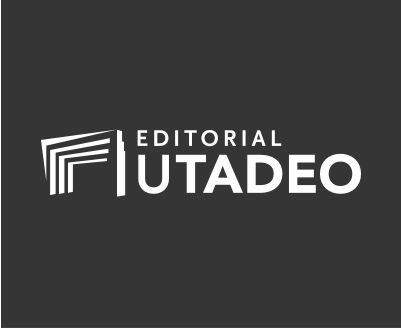Esta obra está bajo una licencia internacional Creative Commons Atribución-NoComercial-CompartirIgual 4.0.
Resumen
In 2020 China eliminated the overall regional poverty and finished the arduous task of solving the problem of absolute poverty. Even though there is an actual lingering problem of relative poverty, the objective risk of falling into a poverty trap in China’s underdeveloped regions does not reasonably exist. This article analyzes four perspectives to underpin such statement: the institutional, the historical, the individual, and the spiritual power.
Citas
Chen B. & Li Y. (2020). The Impact of Redistribution Policies on Rural Income Distribution: An Empirical Study Based on the Reform of the Tax and Fee System, China Social Sciences, 70(92), 205-206.
Chen J. (2019). Resilient Small Farmers: Historical Continuation and Modern Transformation: The Vitality and Autonomous Responsibility Mechanism of Chinese Small Farmers, China Social Sciences, 82, 99-201.
Fu R. (2020). Endogenous Motivation for Poverty Alleviation: A Chinese Psychological Concept, China Social Science News,
Jalan, J. & Ravallion, M. (1999). Are the Poor Less Well Insured? Evidence on Vulnerability to Income Risk in Rural China. Journal of Development Economics, 61-81. https://doi.org/10.1016/S0304-3878(98)00103-5
Jinping, X. (2012). When Xi Jinping visited the needy people in Fuping, Hebei, he emphasized that the people’s safety should be kept in mind at all times, and the warmth of the party and the government should be sent to thousands of households (2012).Xinhuanet. http://www.xinhuanet.com/politics/2012-12/30/c_114206411.htm
Jinping, X. (2018). Seek Development and Promote International Cooperation in Poverty Reduction-A Summary of the International Forum on Reform and Opening-up and China’s Poverty Alleviation. People’s Daily. http://www.gov.cn/xinwen/2018-11/02/content_5336699.htm
Jinping, X. (2019a). Strengthen Cultural Confidence and Build a Socialist Cultural Power, Xinhuanet. http://http://www.xinhuanet.com//politics/leaders/2019-06/15/c_1124627379.htm
Jinping, X. (2019b). Xi Jinping’s Speech at the National Unity and Progress Commendation Conference(2019), Xinhuanet. http://www.xinhuanet.com/politics/leaders/2019-09/27/c_1125049000.htm
Jinping, X. (2020a). Xi’s speech on securing a decisive victory in poverty alleviation published. Chinadaily. http://www.chinadaily.com.cn/a/202003/09/WS5e66085ea31012821727d90c.html.
Jingping, X. (2020b). The Story of Xi Jinping’s Poverty Alleviation. People’s Daily. http://hb.people.com.cn/n2/2020/0520/c194063-34029073.htm
Jingping, X. (2020c). On the issue of building a well-off society in an all-round way to make up for shortcomings, Party building literature collection, 4-5.
Li X. (2019). Research on the Transition and Realization Path of my country’s Economy from Rapid Growth to Seek Progress in Stability, Journal of Beijing Technology and Business University (Social Science Edition), 14-23.
Long J. & Gao P. (2019). Construction of the National Mind and Order: A Social Psychological Path to Build the Chinese National Community Consciousness, Journal of Southwest University for Nationalities (Humanities and Social Sciences Edition), 9-15.
Myrdal, G. (1957). Economic theory and under-development regions. Gerarld Duckworth.25-28.
Nelson, R. R. (1956). A theory of the low-level equilibrium trap in underdeveloped economies. The American Economic Review, 46(5), 894-908.
Nurkse, R. (1953). Problems of capital formation in underdeveloped countries, Oxford University Press,119-127.
Qin G. (2020). The fight against the epidemic demonstrates the superiority of the socialist system with Chinese characteristics, Seeking Truth. 56-60.
Ruan W. (2019). The Organic Connection of Small Farmers and Modern Agricultural Development-Empirical Evidence, Outstanding Contradictions and Path Choices, China Rural Observatory, 15-32.
United Nations (2015). Transforming our world: the 2030 Agenda for Sustainable Development.
Wang, S, & Hu, J. (2020). From survival to development: 70 years of anti-poverty practice in New China, Agricultural Economic Issues, 4-14.
Xiaowan, K. (2019). Undertake the Responsibilities, Learning Times,
Xie’e. (2014). The Assets and Poverty Trap of Rural Households. Chinese Population Science, 71-83+127-128.
Yin, Z, et-al. (2019). Financial Exclusion and Poverty of Chinese Households: An Empirical Study Based on CHFS Data, Research on Financial Issues, 60-68.
You, J. (2014). Risk, Under-Investment in Agricultural Assets and Dynamic Asset Poverty in Rural China, China Economic Review, 27-45. https://doi.org/10.1016/j.chieco.2014.02.002
Zuo, T. et al. (2018). Endogenous Motivation, Pro-poor Market and Policy Guarantee: Fighting the Fight against Poverty and Realizing the Framework of True Poverty Alleviation, Journal of Soochow University (Philosophy and Social Sciences Edition), 191, 47-54.

 PDF (English)
PDF (English)
 FLIP
FLIP












